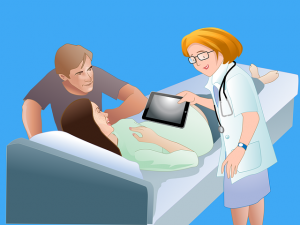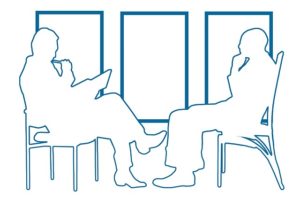Foreign medical graduates make up 25 percent of the working physicians in the United States, yet the U.S. does not have standardized accreditations for these medical schools. As a result, the quality of the education received abroad has been questioned by policymakers and voters. That is not to say that foreign medical schools are not of high quality, but foreign medical students seeking U.S. residencies have difficulties with successful placements if they cannot prove U.S. clinical experience. This is why U.S. clinical electives/clerkships are integral to the education process.
The outlook for foreign medical graduate’s placement in U.S. residency programs is good. In 2010, 2,881 non-U.S. citizen foreign medical graduates were placed into residency programs, but that number increased to 3,641 in 2015. That is 760 more filled positions by non-U.S. citizens. This is not what was originally predicted, and the outlook was predicted to be negative for non-U.S. citizens. However, the National Residents Matching Program (NRMP) has determined the cause of the increase in non-citizen medical graduate placements to be the shortage of U.S. medical graduates to fill the positions. There are simply not enough graduates to fill the available positions. This is good for foreign medical students, but they still have to be able to prove quality education.
Residency directors have acknowledged difficulty placing non-U.S. graduates do to non-standardized education measures, but there may also be biases present among some who simply don’t know if foreign medical schools are producing the quality of residents desired. This is why clinical electives/clerkships work so well: they give non-U.S trained medical students clinical experience under well-reputed Attending Physicians. This results in multiple benefits when it comes to applying for residency programs and interviewing during the Match process.
In order to be placed into a residency of choice, a foreign medical graduate must prove that their educational experience was exceptional and that they are ready to work hands-on as a medical provider. Without clear clinical experience during medical school, a challenging process becomes nearly impossible. Especially for the foreign medical student who is dealing with the cultural changes of an American society, the lack of U.S. clinical experience can cripple an interview for a residency. In contrast, clinical experience within the U.S. assures directors that a foreign medical student has had the chance to apply his or her knowledge and skills in the U.S. medical system, and it makes abilities confirmable. Not only are interviewers assured of a candidate’s ability, but the candidate is able to communicate in a more confident manner. Clinical electives/clerkships pave the way for residency placement.
Not only is U.S. clinical experience a way to influence residency program directors to choosing foreign medical students, but so is the word of U.S. physicians. In an effective clinical elective/clerkship setting, a medical student should be able to gain multiple letters of recommendation (LORs). Letters of recommendation can be the tipping point for directors who need a bit more assurance that medical training has been sufficient. Glowing letters of recommendation from Attending Physicians at teaching hospitals are like a giant stamp of approval for interviewers who need sound confirmation of a candidate’s experience.
Finding a clinical elective/clerkship can be done through FMG Portal. Through FMG Portal, a foreign medical student seeking clinical electives in the U.S. has access to many tools to aid him or her through the process. These services include USMLE preparation assistance, experience with Attending Physicians who are ACGME-affiliated, Visa Embassy Interview Assistance, help with accommodations and a simple, monthly payment program. Students are able to experience outpatient and inpatient situations, and core specialties along with sub-specialties are offered. Most-importantly, the Attending Physicians that students will work with are seasoned professionals, and their recommendations will be influential.
The benefits of clinical electives/clerkships are undeniable, and they give confidence to foreign medical students who need experience in the U.S. to prepare themselves for the Match and residency interviews. They also serve the needed purpose of confirming the quality of education received abroad. Again, there is no denying the fact that there is quality education abroad, but residency directors must be able to confirm that education has been fulfilled in a way that meets or exceeds the quality of U.S. medical schools. That is why getting some clinical experience in the U.S. prior to graduation is a good way to guarantee success.
While it is worth noting the potential biases and discrimination that foreign medical graduates may receive when applying to residencies, it is also worth noting their advantages. Foreign medical graduates have a different perspective when it comes to applying medical knowledge, which may include more education along the lines of infectious disease or among cultures that exist in the U.S. but are not specifically targeted in the U.S. medical school system. There are definite advantages to foreign medical schools, but it must be coupled with U.S. experience in order to make a U.S. residency match a probability.
Need help with residency placement? Contact us today!
























